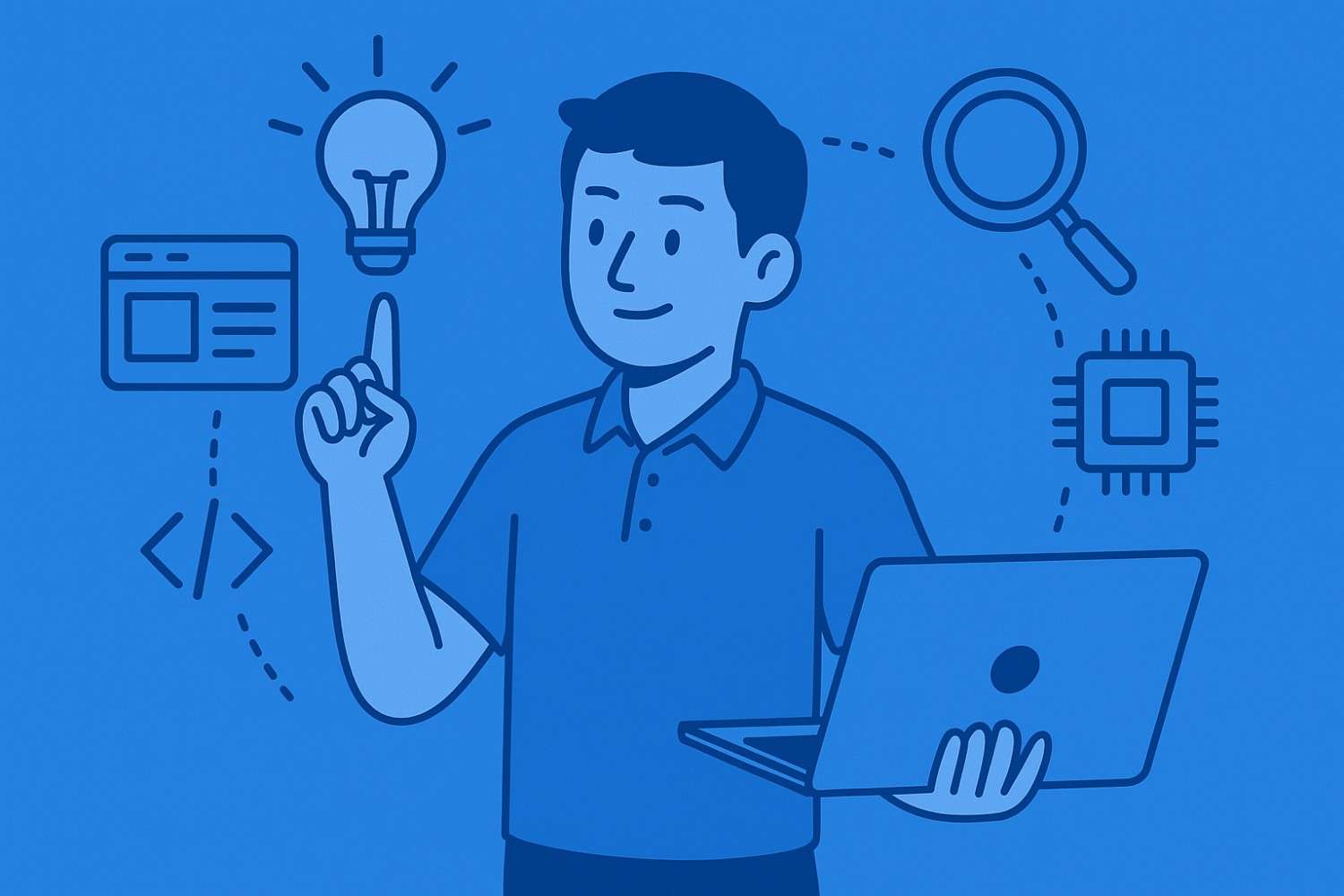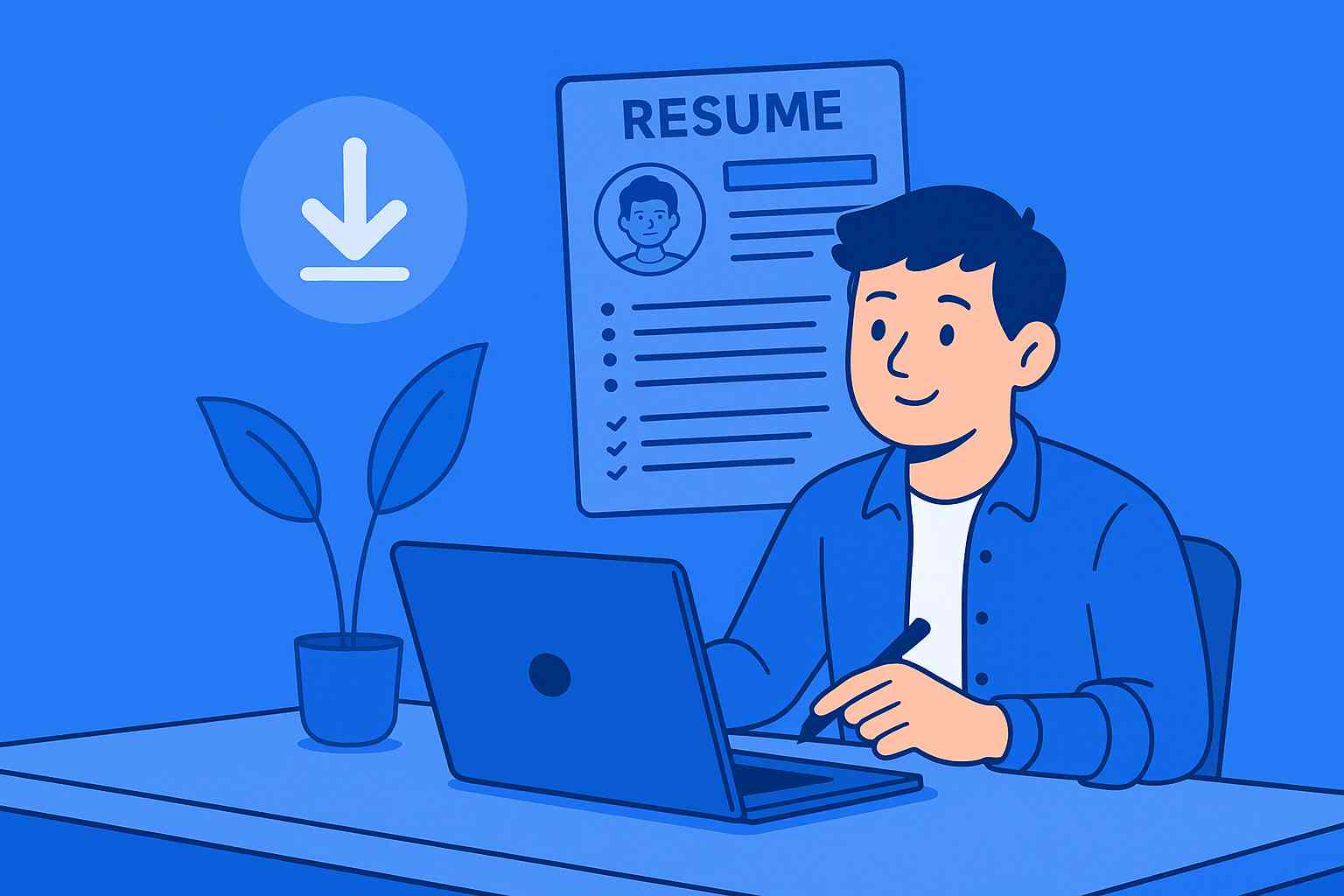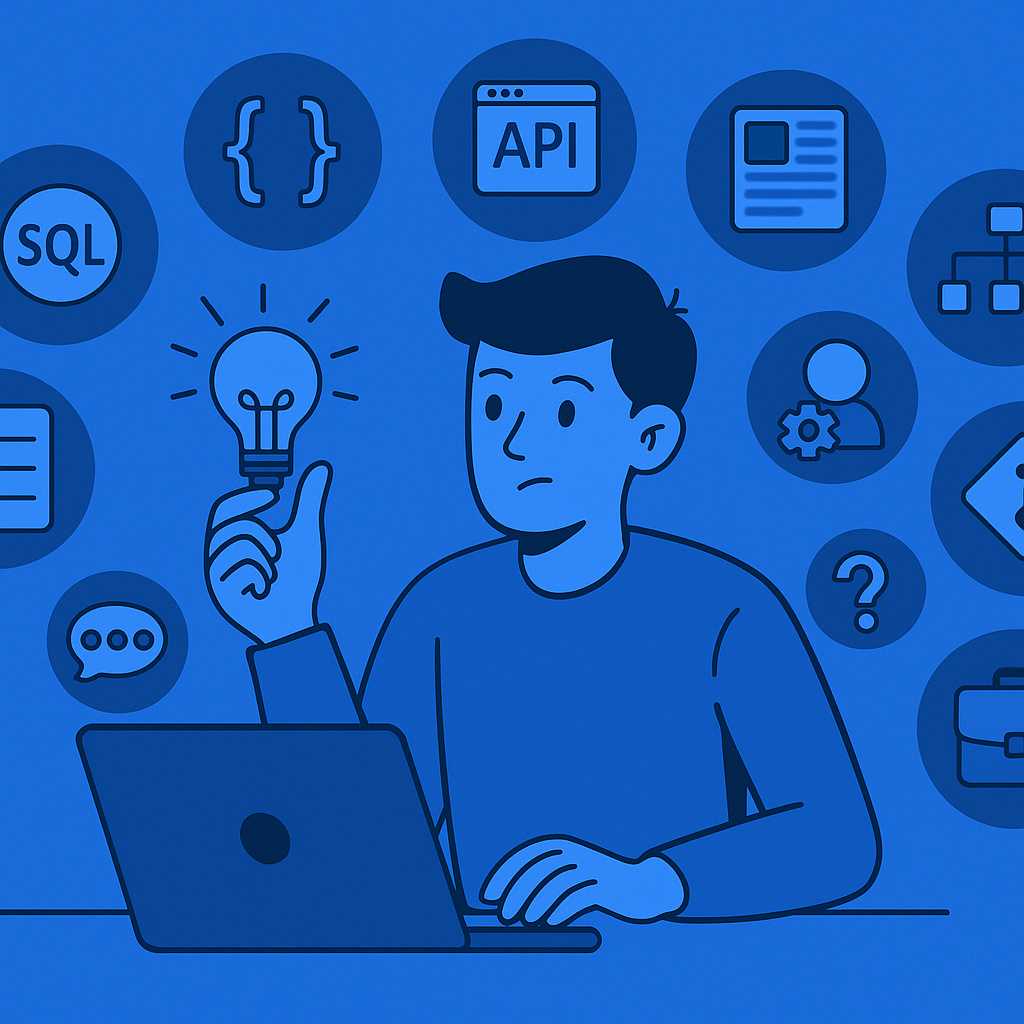10 Essential Skills for Fresher Jobs in Tech

Discover the top fresher jobs in tech for 2025. Explore emerging roles, in-demand skills, and how to land...

Learn about the top fresher jobs, skills required, and practical steps to land your first role.

Breaking into the fresher job market? Here's your complete guide to current hiring trends, sectors with high demand,...

Learn how to negotiate your first salary as a fresh graduate. Get tips on timing, confidence, research, and...

Learn how to succeed in job interviews as a fresh graduate. Includes common questions, preparation tips, and...

Learn how freshers can use LinkedIn to find their first job. Optimize your profile, build connections, and apply confidently.

Explore entry-level renewable energy jobs and green careers for freshers in India. Learn how to start a career in...

Download easy-to-edit resume templates for freshers. Learn how to customize your resume to apply for jobs, even with...

Explore the top healthcare jobs for freshers in medical technology, clinical support, and diagnostics. Learn how to...

Explore entry-level finance jobs for freshers, from analyst roles to banking. Learn the skills required, where to...

Learn how freshers can start a career in e-commerce. Explore entry-level roles, required skills, and growth paths in...

Discover practical job search strategies for freshers. Learn how to write better resumes, use job platforms, and...

Discover the best marketing jobs for freshers, how to get started with no experience, and what roles offer real...

Discover the top technical and soft skills every tech fresher should have to land their first job in the IT industry.

The Indian rupee dipped to 85.70/USD as investors await U.S. jobs data and a looming trade deal deadline, yet...

Ask these key self-reflection questions to define your goals, boost confidence, and land your dream job across any...

Learn how freshers can build a strong professional network from zero. Discover networking events, online platforms,...

Discover the top 10 in-demand fresher jobs for 2025. Find high-paying entry-level career opportunities with growth...

Step-by-step fresher resume writing guide with proven formats and examples. Build a professional CV that stands out...

Complete job hunt guide for freshers. Learn resume writing, interview tips, networking strategies, and job search...

Top fresher interview questions with sample answers and preparation tips. Master your first job interview with...
Resources
-

Set up personalized job alerts to receive notifications about new job openings that match your...
-

Find part-time job opportunities perfect for students, parents, and professionals seeking...
-

Work from home jobs across industries with flexible hours, competitive pay, and real career...
-

Create professional resumes with easy-to-use resume builders. Choose from templates, get...
-

Kickstart your career with internships tailored for students and graduates — explore paid,...
-

Remote jobs have revolutionized how we work, giving professionals the freedom to contribute from...
-

Find the best fresher jobs and entry-level opportunities across IT, Finance, Marketing, and...

Landing your first job in the tech industry can feel overwhelming. You look at job descriptions filled with technologies you've never heard of and feel a wave of imposter syndrome. You are competing with hundreds of other freshers, and it is easy to think you are not good enough.
But here is the truth that successful developers learn early: companies do not hire freshers based on a perfect resume or a long list of qualifications. They hire for potential. They look for practical skills, a logical approach to problem-solving, and a genuine eagerness to learn.
If you know what skills matter most to hiring managers, you can focus your efforts, build a strong foundation, and stand out from the crowd.
This guide breaks down the top 10 must-have skills that help freshers get hired in IT and tech roles. Whether you are targeting a career in development, QA, support, or design, mastering these skills will form the bedrock of your career.
Why Practical Skills Matter More Than a Perfect Resume
Recruiters and hiring managers know that freshers will not have real-world corporate experience. They are not looking for a long job history on your resume.
Instead, they are trying to answer a few key questions about you:
- Can you take a problem and break it down into logical steps?
- Do you understand the fundamental concepts of programming?
- Are you comfortable using the same tools that professional teams use every day?
- Can you communicate your ideas clearly and work effectively with others?
Demonstrating a solid mix of these technical and soft skills is what will get your application moved from the rejection pile to the interview shortlist. You can use the JobPe Resume Builder to showcase these skills professionally.
1. A Problem-Solving Mindset
Before you write a single line of code, you need to know how to think. Tech jobs are, at their core, about solving problems. Whether you are fixing a bug, designing a system, or building a new feature, your ability to think logically and methodically is your most valuable asset.
Why It’s Essential for Freshers Companies know that technologies and programming languages will change. A problem-solving mindset, however, is a timeless skill. It shows that you can learn, adapt, and handle challenges independently, making you a valuable long-term hire.
How to Practice and Build This Skill - Break down every problem into the smallest possible parts before you start coding. - Solve at least one or two basic coding challenges every day on platforms like HackerRank. - Use the JobPe Coding Practice section to work on puzzles and challenges that are commonly asked in interviews.
2. Strong Programming Fundamentals
You do not need to be an expert in five different programming languages. In fact, it is much better to have strong foundational knowledge in one or two core languages. For most fresher roles, these are typically C++, Python, or JavaScript.
Key Concepts to Master
- Core Constructs: You should be very comfortable with variables, data types, loops, and functions.
- Data Structures: Have a solid understanding of arrays, strings, stacks, and queues.
- Object-Oriented Programming (OOP): Know the basic principles of OOP, like classes, objects, and inheritance.
- Basic Algorithms: Understand simple recursion and common sorting algorithms.
How to Practice and Build This Skill The only way to learn is by doing. Write small programs consistently. Keep all your work in a GitHub repository, which you can then show to employers during interviews.
3. Version Control with Git and GitHub
In the professional world, code is rarely written by a single person in isolation. Almost every tech team uses a version control system like Git to manage their codebase and collaborate effectively.
Why It’s Essential for Freshers Knowing basic Git commands shows that you are ready to work in a team environment. It proves that you understand how to contribute to a larger project without creating chaos.
Key Commands You Should Know
git init,git add,git committo save your work locally.git push,git pull,git cloneto interact with a remote repository.- Creating branches for new features and merging them back into the main codebase.
How to Practice and Build This Skill Create a GitHub account today. Every project you work on, no matter how small, should be pushed to your GitHub. Include this link prominently on your resume.
4. SQL and Database Basics
Nearly every application in the world needs to store and retrieve data. Whether you become a developer, a tester, or a data analyst, understanding how to interact with databases is an essential skill.
Key Concepts to Master
- Writing basic queries like
SELECT,INSERT,UPDATE, andDELETE. - Understanding the concept of primary keys, foreign keys, and how to perform
JOINoperations. - Getting hands-on experience with a database system like MySQL, PostgreSQL, or SQLite.
How to Practice and Build This Skill
Install a free database like PostgreSQL on your computer. Find a sample dataset online (for example, movie data or sports statistics) and practice writing queries to answer questions about the data.
5. Frontend or Backend Specialization
As a fresher, you are not expected to know everything. It is much better to choose one direction—either frontend or backend development—and build a solid foundation in that area.
If You Choose Frontend
- Core Technologies: Master HTML, CSS, and JavaScript.
- Frameworks: Learn the basics of a popular framework like React.
- Key Concepts: Understand responsive design to make websites work on all devices.
If You Choose Backend
- Frameworks: Start with a beginner-friendly framework like Node.js (with Express), Django (Python), or Flask (Python).
- Key Concepts: Learn about routing, middleware, and how to build REST APIs.
- Database Integration: Know how to connect your backend code to a database to save and retrieve data.
How to Practice and Build This Skill The best way to learn is by building. Create a simple project, like a to-do list application or a personal portfolio website, using the stack you have chosen.
6. Understanding APIs
Applications today rarely work in isolation. They "talk" to each other using APIs (Application Programming Interfaces). Knowing how to use and test APIs is a critical skill.
Key Concepts to Learn
- Understand what a REST API is and how it works.
- Learn how to use a tool like Postman to send API requests.
- Know the difference between
GETandPOSTrequests. - Be able to read and understand a basic JSON response format.
This is a very common topic in technical interviews for both frontend and backend roles.
7. Debugging and Testing Skills
Freshers often focus only on writing code, but learning how to find and fix errors (debugging) is just as important. Knowing the basics of software testing makes you a much more valuable candidate.
Tools and Methods to Learn
- Use
console.login JavaScript orprintstatements in Python to check your code's execution. - Learn how to use the Chrome DevTools for frontend debugging.
- Understand the concept of unit testing and try a basic framework like Jest (for JavaScript) or Pytest (for Python).
You can even practice this skill by finding beginner-friendly bugs on open-source projects and trying to fix them.
8. Clear Communication and Team Collaboration
Your technical skills will get you in the door, but your soft skills will determine how successful you are. In tech, you need to be able to explain your code, ask good questions, and listen to feedback.
How to Practice and Build This Skill
- When you are stuck on a problem, practice asking clear and specific questions.
- Participate in discussions on GitHub or project boards.
- Present your personal projects clearly during mock interviews.
- Practice your communication skills with JobPe Mock Interviews, where you can simulate technical discussions.
9. A Polished Resume and Portfolio
Recruiters often spend less than ten seconds reviewing a fresher's resume. Yours needs to be clean, easy to read, and focused on the skills that matter.
Tips to Stand Out
- Clearly list the programming languages, tools, and frameworks you have used.
- Provide links to your GitHub profile and any live projects you have built.
- Avoid vague descriptions. Focus on what you have actually accomplished in your projects.
Use the JobPe Resume Builder to help you build and format a professional, skills-focused resume.
10. A Mindset of Continuous Learning
The technology industry changes at a rapid pace. The most valuable quality a fresher can have is a genuine curiosity and a desire to keep learning.
How to Demonstrate This Quality
- Mention your self-learning projects in your resume and interviews.
- Add any relevant certifications you have completed from platforms like Coursera or Google.
- Follow industry updates for the frameworks or tools you use.
- Join developer communities on platforms like Reddit or Discord to stay engaged.
Interviewers often love to ask, “What is something new you have learned recently?” Your answer to this question shows your motivation more than any degree can.
Where to Practice and Apply for Tech Jobs
Finding your first job is easier when you use the right platforms. Do not waste hours scrolling through unverified job boards.
Here is where to focus your search: - JobPe: Find curated tech jobs specifically for freshers. - JobPe Auto Apply Tool: Apply to multiple relevant listings in one go. - JobPe Coding Practice: Use this for daily challenges and test preparation. - LinkedIn Jobs: A great platform to filter by experience level and connect with recruiters. - CutShort: A job board focused specifically on the tech industry. - AngelList (now Wellfound): The best platform for finding jobs at startups.
To understand what you should be earning, you can check the JobPe Salaries page to see pay benchmarks for fresher roles.
Your 6-Step Roadmap to Getting Hired
If you are just starting out, use this step-by-step plan to build your skill stack.
Step 1: Choose Your Path Decide if you are more interested in frontend, backend, QA, or another area of tech.
Step 2: Pick Your Initial Tech Stack Start small. Focus on one programming language, one framework, and one version control tool (Git).
Step 3: Build Simple Projects Create a few basic projects like a to-do app, a blog site, or a personal portfolio.
Step 4: Push Everything to GitHub Make sure all your projects are on your GitHub profile with clear ReadMe files.
Step 5: Create Your Resume and Apply Use the JobPe Resume Builder to create your resume and the Auto-Apply Tool to streamline your applications.
Step 6: Practice for Interviews Use resources like the Mock Interview Portal and the Interview Questions Guide to prepare.
Get Hired with Skills, Not Just Scores
You do not need perfect grades or a computer science degree from a top-tier college to succeed in tech. The industry rewards learners and doers.
Pick two or three skills from this list and dedicate yourself to mastering them. Build projects, contribute where you can, and apply what you learn. If you stay consistent, your first job offer will come sooner than you think.
